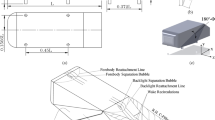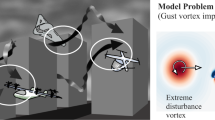Abstract
AN essential factor in the control of anything, whether it be a motor-car, a ship, or an aeroplane, is some means of applying the necessary force in the desired direction. The car requires its steering wheel, the ship its rudder. But this is not the only factor which decides the character of the control, whether quick or slow, difficult or easy. Other factors inherent in the craft to be controlled have to be considered. One such factor is inertia. A motor-car has very little inertia compared with the forces which can be exerted through the road wheels; consequently, it responds at once to a movement of the steering wheel, and the turning stops immediately the wheel is centralised. A ship has great inertia compared with the force exerted by the rudder; consequently the rudder must be applied some time before an appreciable turn is started, and reversed against the movement long before the ship has swung to its new course. The character of the control of a ship is thus entirely different from that of a car, on account of this factor of inertia, which has nothing to do with the controls themselves.
This is a preview of subscription content, access via your institution
Access options
Subscribe to this journal
Receive 51 print issues and online access
$199.00 per year
only $3.90 per issue
Buy this article
- Purchase on Springer Link
- Instant access to full article PDF
Prices may be subject to local taxes which are calculated during checkout
Similar content being viewed by others
Rights and permissions
About this article
Cite this article
JONES, B. Research on the Control of Aeroplanes1. Nature 121, 755–762 (1928). https://doi.org/10.1038/121755a0
Issue Date:
DOI: https://doi.org/10.1038/121755a0
Comments
By submitting a comment you agree to abide by our Terms and Community Guidelines. If you find something abusive or that does not comply with our terms or guidelines please flag it as inappropriate.



